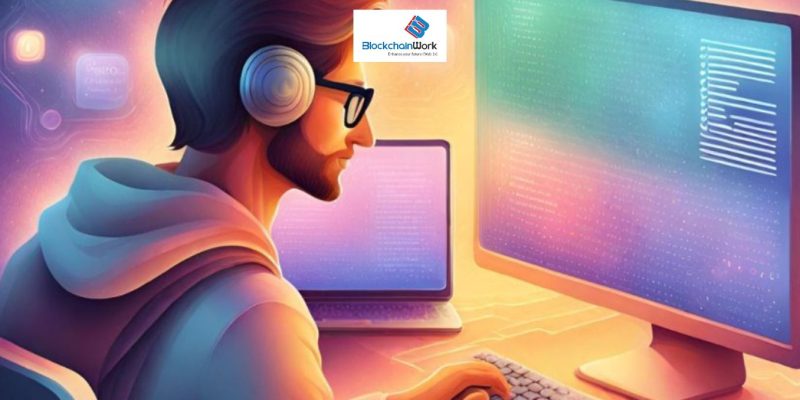Top 10 Web3 Programming Languages to Build Your Career in the Web3 Industry

As the Web3 industry continues to revolutionize the digital landscape, the demand for skilled developers proficient in Web3 programming languages is at an all-time high. Web3, the decentralized internet powered by blockchain technology, is reshaping how we think about data ownership, financial systems, and digital interactions. Whether you are an aspiring developer or a seasoned coder looking to transition into Web3, mastering the right programming languages can set you up for success.
In this article, we will explore the top 10 Web3 programming languages, categorized into Smart Contract Languages, Blockchain Infrastructure Languages, and Web3 Integration Languages. This classification helps clarify the role each language plays in the ecosystem. If you’re looking to land a job in the Web3 industry, these languages are your gateway to a thriving career.
Mục lục bài viết
- 1 Smart Contract Languages (For On-Chain Logic & dApps)
- 2 Blockchain Infrastructure Languages (For Core Blockchain Development)
- 3 Web3 Integration & Frontend Development Languages
- 4 Choosing the Right Language
- 5 Educational Pathways (Focus on Hands-On Learning Over Certifications)
- 6 Building Your Web3 Career
Smart Contract Languages (For On-Chain Logic & dApps)
Solidity
Solidity is the cornerstone of blockchain development on Ethereum and other EVM-compatible networks. It is a statically typed language designed specifically for writing smart contracts. With features like inheritance, libraries, and custom data types, Solidity is powerful yet complex, requiring an understanding of blockchain security principles.
Why Learn Solidity?
- Essential for Ethereum and EVM-based blockchains, making Solidity developers highly sought after.
- Comes with a rich ecosystem, including tools like Remix, Truffle, and Hardhat, to streamline development.
- Security risks such as reentrancy and gas optimization must be learned alongside programming skills.
Vyper
Vyper is a Python-like language tailored for writing Ethereum smart contracts. While it is less feature-rich than Solidity, its simplicity and security-focused design make it a strong choice for critical applications.
Why Learn Vyper?
- Prioritizes security over complexity, making smart contract code easier to audit.
- Lacks features like inheritance to reduce attack vectors.
- Not as widely adopted as Solidity but growing in demand for secure dApp development.
Cairo (For Zero-Knowledge Computation & Layer 2 Solutions)
Cairo is a language specifically designed for zk-rollups and scalable Layer 2 solutions. It is used by StarkNet to enable high-throughput and low-cost transactions.
Why Learn Cairo?
- Specialized for ZK-STARK proofs and high-performance scaling solutions.
- Not a general-purpose blockchain language but crucial for privacy-preserving applications.
- Growing demand for Cairo developers in Layer 2 ecosystems like StarkNet.
Move (For Secure Smart Contracts in Aptos & Sui)
Move is an emerging smart contract language designed for security, parallelization, and resource-oriented programming. Developed by ex-Facebook engineers, Move powers Aptos and Sui blockchains.
Why Learn Move?
- Eliminates common vulnerabilities in Solidity, such as reentrancy attacks.
- Highly optimized for blockchain scalability and parallel execution.
- A rising language in the Web3 space, especially for financial applications.
Blockchain Infrastructure Languages (For Core Blockchain Development)
Rust
Rust is known for its performance and safety, making it ideal for blockchain platforms like Solana, Polkadot, and Near Protocol. Rust is used for blockchain runtime development, such as implementing core logic in Substrate (Polkadot) and Solana smart contracts (compiled to BPF).
Why Learn Rust?
- High efficiency and safety, preventing memory leaks and vulnerabilities.
- The backbone of major blockchain projects, including Solana, Near, and Polkadot.
- Essential for blockchain engineers but has a steep learning curve.
Go (Golang)
Go is the backbone of several prominent blockchain platforms, including Ethereum’s Go implementation (Geth) and Hyperledger Fabric.
Why Learn Go?
- Ideal for blockchain node development and scalable systems.
- Optimized for high-performance blockchain nodes and networking applications.
- Used in key blockchain projects, including Ethereum (Geth) and Hyperledger.
C++ (Used in Legacy Blockchains & Performance-Intensive Applications)
C++ is a veteran language in software development and remains critical for blockchain infrastructure. It powers legacy blockchains like Bitcoin Core and EOSIO but is not commonly used for smart contract development today.
Why Learn C++?
- Provides low-level control over system resources, essential for blockchain clients like Bitcoin.
- Still relevant for high-performance blockchain applications.
- Not commonly used for writing smart contracts in modern blockchains.
Web3 Integration & Frontend Development Languages
JavaScript (For dApp Frontends & Blockchain Interactions)
JavaScript remains a versatile language in the Web3 landscape, primarily used for integrating blockchain networks into front-end applications. Frameworks like React and libraries like web3.js and ethers.js allow developers to interact seamlessly with blockchain networks.
Why Learn JavaScript?
- Essential for building decentralized application (dApp) user interfaces.
- Not a blockchain-native language but crucial for Web3.js and Ethers.js interactions.
- Easier for developers transitioning into Web3 from traditional web development.
Python (For Blockchain Analytics, Scripting & Backend Development)
Python’s simplicity and readability make it a favorite among developers. It is widely used for blockchain analytics, testing, and Web3 integrations rather than writing smart contracts.
Why Learn Python?
- Great for developing blockchain automation scripts and API integrations.
- Web3.py allows for easy Ethereum smart contract interaction.
- Not a primary smart contract language but valuable for blockchain infrastructure development.
C# (For Enterprise Blockchain & Gaming dApps)
C# is increasingly being adopted in blockchain development, especially for enterprise solutions and gaming dApps. Platforms like Stratis and Neo leverage C# for building blockchain-based applications.
Why Learn C#?
- Popular in enterprise blockchain solutions.
- Useful for integrating blockchain with gaming platforms (e.g., Unity + Web3).
- Familiar to traditional developers transitioning from corporate software development.
>>Read more: How to stay motivated as a Web3 Freelancer
Choosing the Right Language
Choosing the right Web3 programming language depends on your project’s needs:
- If you’re developing smart contracts, go with Solidity for Ethereum or Rust for Solana.
- For blockchain infrastructure, Rust, Go, and C++ are best for building core blockchain protocols.
- If you’re working on front-end integrations, JavaScript and Python will help you connect dApps to blockchains.
Other method to choose depends on your project’s complexity, performance requirements, and blockchain compatibility. For example:
- Complexity: If you’re new to blockchain, beginner-friendly languages like Python or JavaScript can be excellent starting points.
- Performance: High-performance dApps may require Rust or C++ for their efficiency and scalability.
- Blockchain Compatibility: For Ethereum, Solidity is a must, while Solana development leans heavily on Rust.
- Developer Needs: Consider your prior experience and the specific tools available for each language to streamline your workflow.
Evaluate these factors carefully to make a choice aligned with your goals and the demands of the Web3 industry.
Educational Pathways (Focus on Hands-On Learning Over Certifications)
To become proficient in Web3 programming, it’s crucial to access the right educational resources:
- Participate in hackathons and open-source projects on GitHub to gain real-world experience.
- Learn by using Remix for Solidity, Rust-based frameworks for Solana, and Cairo tools for ZK development.
- Join Web3 developer communities (Discord, Twitter, GitHub) to stay updated on industry trends.
Building Your Web3 Career
Learning these Web3 programming languages is the first step toward a rewarding Web3 career. To succeed, you will need to pair your technical skills with a deep understanding of blockchain technology and decentralized systems. Networking within the Web3 community and contributing to open-source projects can also boost your visibility and employability. BlockchainWork, Vietnam’s leading blockchain talent community, is here to support your career growth. Explore exciting job opportunities in the Web3 industry by visiting BlockchainWork.net. Join our platform to connect with top employers, gain access to resources, and stay updated on the latest trends in blockchain and Web3 development.
Don’t miss your chance to be part of the Web3 revolution. Follow BlockchainWork today and take your first step toward a fulfilling career in Web3!
BlockchainWork
BlockchainWork – leading blockchain talent community in Viet Nam
- BlockchainWork website: https://blockchainwork.net/
- Post blockchain job FREE: https://blockchainwork.net/employer-signup
- Contact us: contact@blockchainwork.net
- Sign up as candidate for blockchain jobs: https://blockchainwork.net/candidate-signup
>>You may be interested in:
BlockchainWork and Ho Chi Minh City University of Economics and Finance (UEF) Announce Partnership to Develop Blockchain – Web 3.0 – AI…
Vietnam’s technology landscape is entering a strong growth phase, especially in Blockchain, Web 3.0, and AI. While demand for skilled digital talent continues to surge, high-quality supply remains limited. Against this backdrop, the strategic partnership between BlockchainWork and…
BlockchainWork Interview with Eric Lee: Bringing Trust Back to Digital Voting
Blockchain technology is rapidly expanding across finance, entertainment, governance, supply chain, identity, and many other real-world sectors. To provide a more practical and diverse perspective on how blockchain is being applied, BlockchainWork conducted an interview with Mr. Erik Lee, CEO…
BlockchainWork Interview with JCBA: Japan’s Crypto Journey and Vietnam’s Future
At WebX 2025, Asia’s leading Web3 conference in Tokyo, BlockchainWork had the opportunity to sit down with Mr. Seiji Yuki, Executive Managing Director of the Japan Cryptoasset Business Association (JCBA). The discussion was hosted by Tien Le, CEO of BlockchainWork,…
BlockchainWork Interview with TOPPAN Edge: Exploring Web3 Certification
During WebX 2025 in Tokyo, BlockchainWork had the opportunity to conduct an interview with Mr. Yasuhiro Fujiwara, Team Leader of the Solution Development 1st Team at TOPPAN Edge Inc., a TOPPAN Group company and wholly owned subsidiary of TOPPAN Holdings.
BlockchainWork visit Japan Blockchain Association – Strengthen web3 talent ecosystem
On 27 August 2025, BlockchainWork founding team met with representatives of the Japan Blockchain Association (JBA) in Tokyo for a focused discussion about practical ways to connect Japan’s Web3 companies with blockchain talents in Vietnam, enhancing market insight…
Nhận thông tin mới nhất về sự kiện BlockchainWork
Đăng ký và thông báo tất cả các việc làm liên quan















